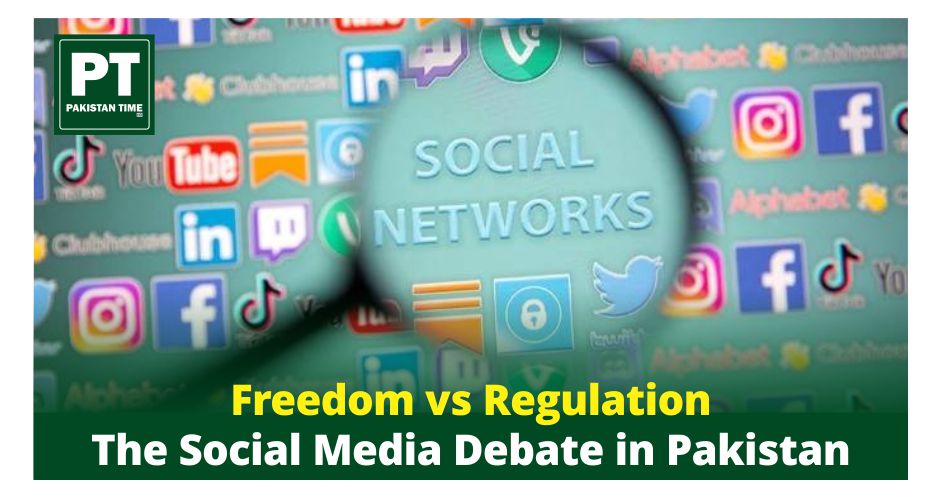Freedom vs. Regulation: The Social Media Debate in Pakistan
Senator Bahramand Khan Tangi, formerly associated with the Pakistan People’s Party (PPP), has withdrawn a resolution aimed at banning major social media platforms in Pakistan. The resolution, which was initially proposed by Senator Tangi, called for bans on social sites including Facebook, TikTok, Instagram, Twitter (now X), and YouTube. The motivation behind this proposal was to protect the younger generation from the negative and devastating effects of these platforms on the country’s interests.
During the Senate proceedings, Senator Faisal Javed and other members of the upper house opposed the resolution strongly. They emphasized that media freedom is a democratic right for Pakistani citizens. Meanwhile, Senator Saifullah Abro questioned the resolution’s inclusion in the Senate agenda, highlighting that 12.5 billion youngsters had been affected by it. Senator Tangi attempted to speak multiple times but faced interruptions and objections. Ultimately, he withdrew his motion, stating that every member of the House has the right to move a resolution, and if the majority disagrees, the motion can be withdrawn.
It’s important to note that the PPP disowned the resolution, asserting that Tangi was not a party member. Despite being issued a show-cause notice for deviating from party policy, Tangi failed to provide an explanation. The PPP had previously terminated his basic membership for remaining silent on a resolution seeking a delay in the February 8 polls.
In early 2023, Pakistan witnessed significant digital adoption and use. Here are some key statistics related to internet and social media in the country:
- Internet Users:
- Pakistan had 87.35 million internet users at the start of 2023, with an internet penetration rate of 36.7% of the total population.
- The country’s internet user base increased by 4.4 million (a growth of 5.4%) between 2022 and 2023.
- Social Media Users:
- Pakistan was home to 71.70 million social media users in January 2023, which accounted for 30.1% of the total population.
- YouTube emerged as the most-used social media platform in Pakistan, with a potential ad audience of 71.70 million. This audience represents 82.1% of total internet users and 30.1% of the entire population.
- Cellular Mobile Connections:
- A total of 191.8 million cellular mobile connections were active in Pakistan in early 2023, equivalent to 80.5% of the total population.
- Facebook Usage:
- Around 46.44 million Facebook users were recorded in Pakistan, with male users constituting approximately 77.2% and female users around 22.8%.
- Market Revenue:
- The total revenue in the Social Networking market in Pakistan was projected to reach US$31.96 million in 2022. It is expected to grow annually at a rate of 5.41%, resulting in a projected market volume of US$40.67 million by 2027.
These figures highlight the country’s growing digital landscape and the significant role social media platforms play in connecting people, disseminating information, and driving economic activities.
- Media Freedom and Expression: By not banning social media platforms, Pakistan continues to uphold media freedom and the right to expression. Citizens can freely share their opinions, engage in discussions, and access information.
- Youth Engagement and Empowerment: Social media plays a crucial role in youth engagement. It provides a platform for young people to express themselves, participate in social issues, and connect with others globally. Not banning these platforms ensures that Pakistani youth can continue to benefit from these opportunities.
- Economic Impact: Social media platforms contribute significantly to Pakistan’s economy. Banning them would affect businesses, advertising, and digital marketing. Many entrepreneurs and content creators rely on these platforms for livelihoods.
- Social and Cultural Exchange: Social media fosters cross-cultural interactions. Banning platforms would limit Pakistan’s exposure to global trends, ideas, and cultural exchange. It could isolate the country from the digital world.
- Misinformation and Harmful Content: On the flip side, not banning social media platforms means dealing with misinformation, hate speech, and harmful content. Authorities must find a balance between freedom of expression and curbing harmful content.
- National Security and Cybersecurity: Social media can be misused for spreading propaganda, inciting violence, or coordinating illegal activities. Not banning platforms requires robust cybersecurity measures to protect national interests.
- Privacy Concerns: Social media platforms collect user data, raising privacy concerns. Not banning them means addressing data privacy issues effectively.
In summary, Senator Tangi’s withdrawal of the resolution marks a significant development in the ongoing discourse around social media regulation in Pakistan. The decision not to ban social media platforms reflects a commitment to democratic values, economic considerations, and the need for responsible regulation to mitigate potential harms.








